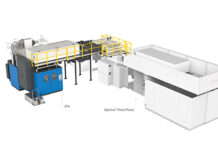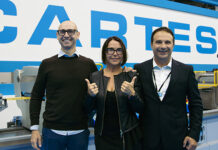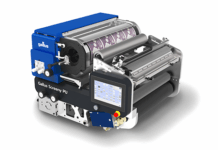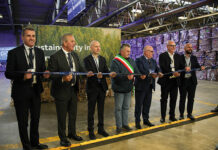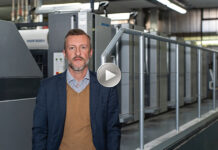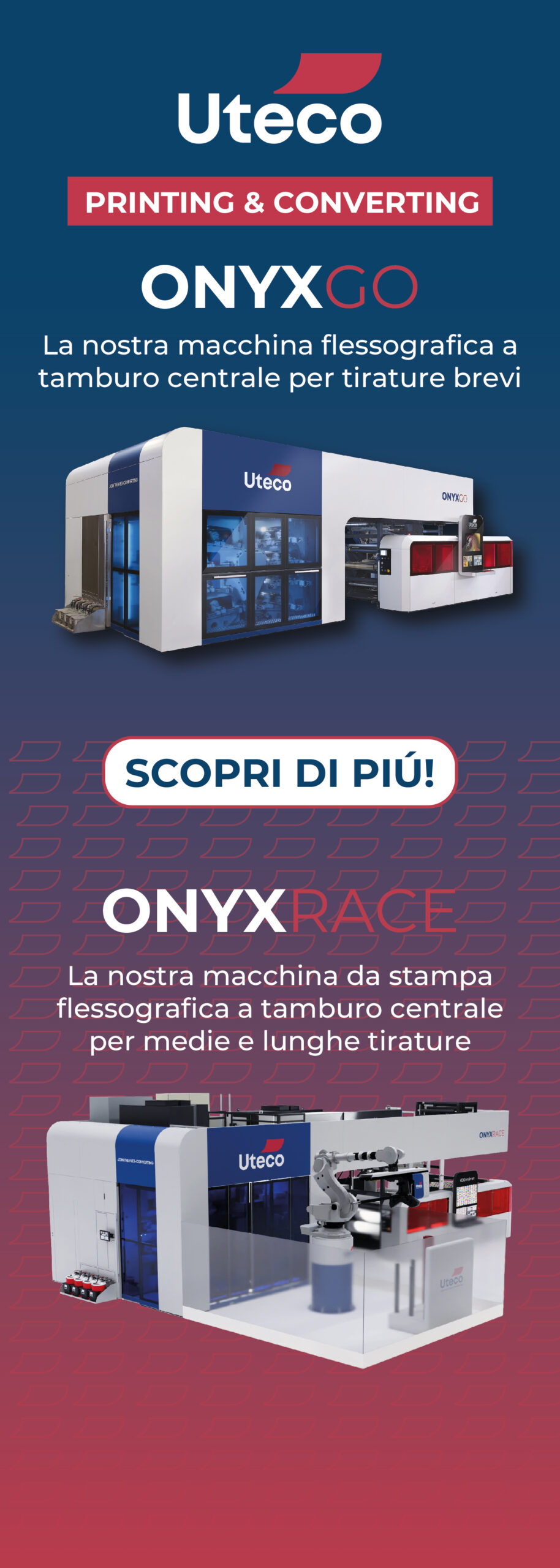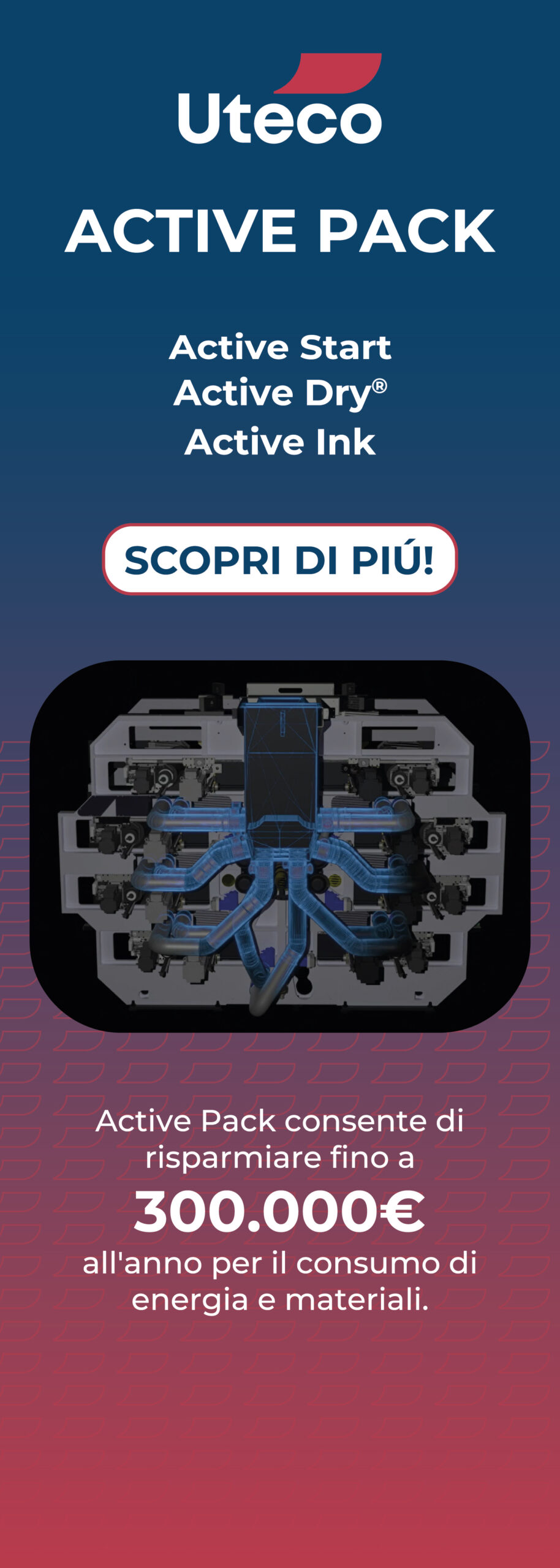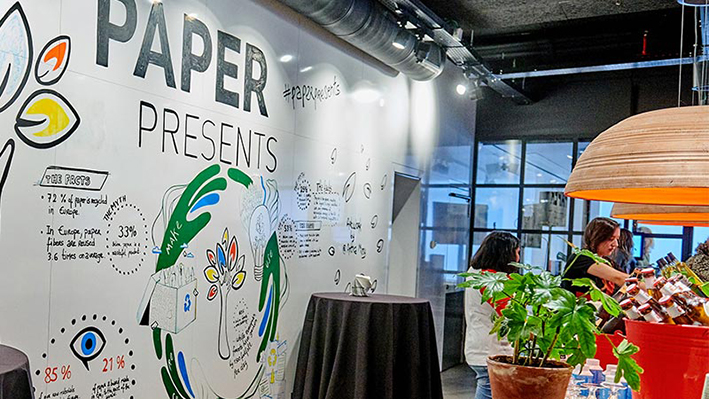 Trade associations representing the European paper and board industry demonstrate to new Members of the European Parliament how paper and board products are continuously innovative, renewable, and a perfect example of the circular economy in Europe.
Trade associations representing the European paper and board industry demonstrate to new Members of the European Parliament how paper and board products are continuously innovative, renewable, and a perfect example of the circular economy in Europe.
On September 4th, CEPI, FEFCO, ACE, and FEPE organised an interactive exhibition called Paper Presents to introduce the paper and board industry to the new members of the European Parliament. Along with several national paper associations that took part in the event as well, the paper and board industry was able to highlight the endless possibilities of paper products, the innovation they bring, and the circularity at the core of their industry.
“There are themes that CEPI and the co-organising partners have in common. Renewability, recyclability and the ability to mitigate climate change is what we have, we are proud of and we share with society,” said Jori Ringman, CEPI Director General.
One of the most interesting parts for the members of the Parliament was certainly the exhibition, which brought paper and board innovations to one place and showcased a large selection of ingenuous and sustainable inventions all created with paper and forest-fibre products. The Tree-Shirt is a great example. Based on Tencel Lyocell fibres made from sustainable wood sources, textiles can be made and thus, clothing. The fibres are produced in an environmentally responsible closed loop process, which transforms wood pulp into cellulosic fibres with high resource efficiency and low ecological impact.
Innovations in packaging were also on display, including Landbox Straw which, using organic, recyclable and hygienic materials, insulates products with shock absorption qualities during transit. Stretching Inner part, a bio-based and recyclable packaging material that protects fragile goods in transit, was also on exhibit.
There were also paper and board innovations meant for the food and drink industry. Wetclar paper straws was one example. These straws are made of virgin fibres produced specifically for food contact and certified by FSC, PEFC and ECOLABEL. They are also treated against humidity and guarantee hydrophobicity. All in all, the straws are a great alternative to single-use plastic ones. Other products, such as beverage cartons, are also constantly innovating to improve functionality while offering a low carbon footprint. Participants could taste water in beverage carton which is a new segment driven by the consumers demand for environmentally friendly products.
What is very important about the paper and board industry—and the products made with these materials—is that it is circular. Recycling rates for these materials are the highest in Europe. The paper and board products are closing the loop and championing the circular economy, which is so important for Europe’s future.
“Our material is circular by nature. It can be 100% recycled and what distinguishes it from other materials is that it promises recyclability and it is also effectively recycled all over Europe,” said Angelika Christ, FEFCO’s Secretary General.
It is part of the industry’s belief in making sound environmental choices and enabling a good future for Europe and Europeans. Lisa Kretschmann, the Managing Director of FEPE, representing companies in the paper envelope manufacturing sector, explained: “Envelopes
and mail are not just the only way to reach citizens in all corners of the #EU. For 60-80% of them, they are also the preferred means to receive important information.”
The paper and board industry is committed to supporting forest growth in Europe. Annick
Carpentier, ACE Director General, announced that for every guest who attended the Paper
Presents event, one tree will be planted. “This is one more reason to say thank you to
everyone who joined us tonight.”
Every consumer must make a choice about the kind of products he or she wants to buy.
The paper and board products are the ideal choice because they are the perfect example of
the circular economy. This industry reflects a responsible future for Europe. The innovations within the sector continue to meet the increasing consumer demand for sustainable products.
Home Converter & Cartotecnica Packaging - Materials Paper Presents: innovative and circular solutions for consumers




